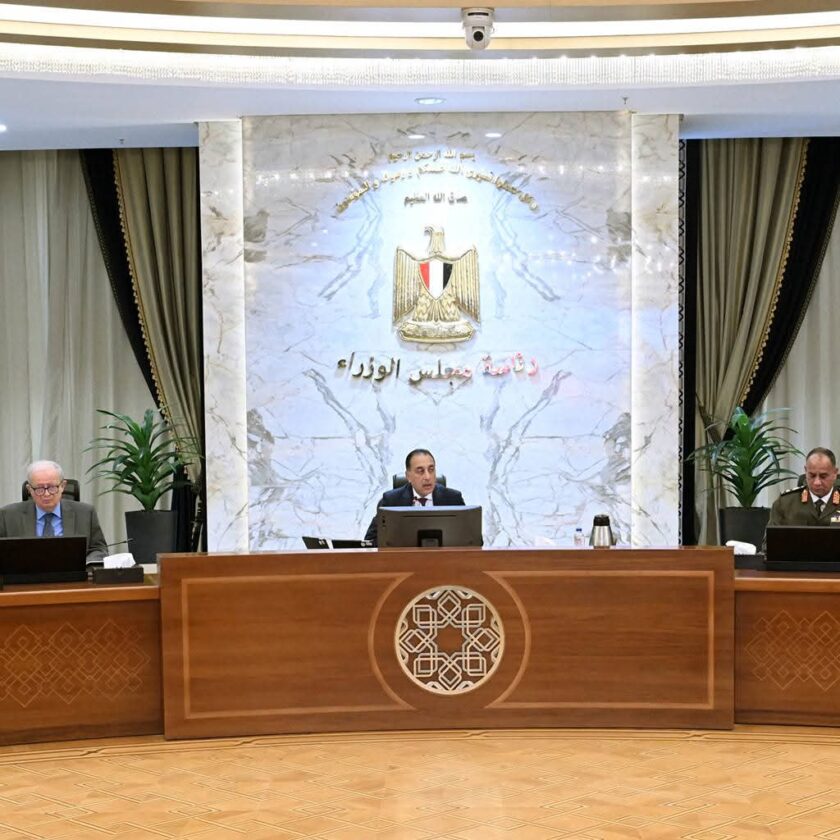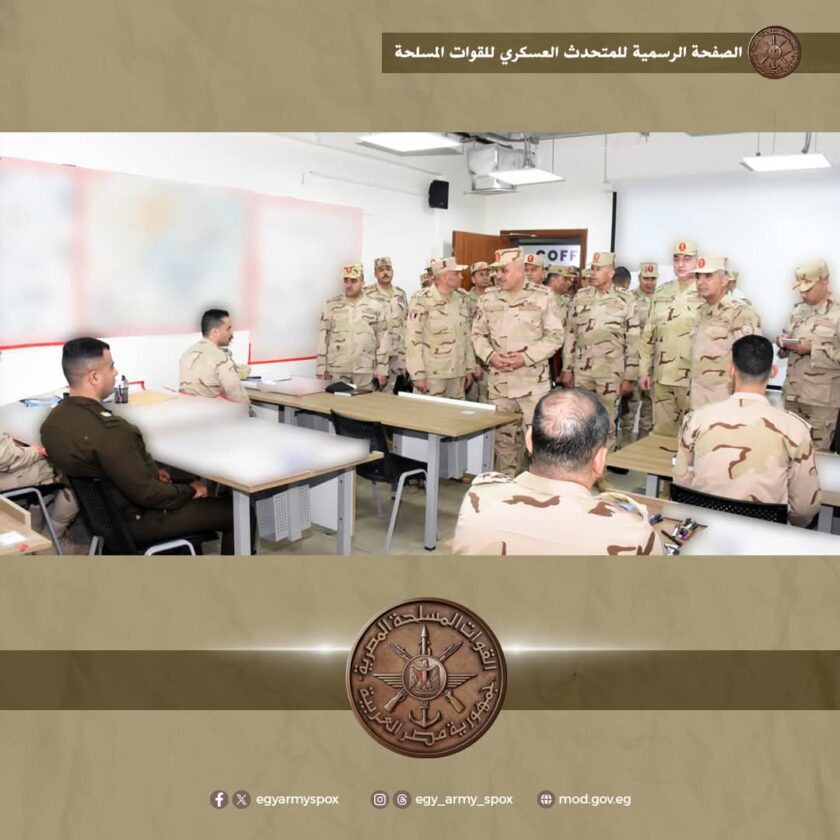
كتب / مصطفى حسين
المرحلة الثانية تبدأ في 6 محافظات بالصعيد وتستهدف التوسع في قرى مبادرة “حياة كريمة” لرفع مستوى المعيشة لصغار المزارعين والمرأة
في إطار التحضير للبدء في المرحلة الثانية من مشروع دعم صغار المزارعين الذي يرعاه البنك المركزي المصري
شهد السيد الاستاذ/ حسن عبد الله محافظ البنك المركزي المصري، والسيد الاستاذ/ علاء فاروق وزير الزراعة واستصلاح الأراضي، توقيع الاتفاقية التشغيلية للمرحلة الثانية من المشروع بين وزارة الزراعة واستصلاح الأراضي، وبرنامج الاغذية العالمي التابع للأمم المتحدة.
وقع الاتفاقية اليوم بمقر البنك المركزي المصري، كل من المهندس/ مصطفى الصياد نائب وزير الزراعة واستصلاح الأراضي، والسيد / جان بيير دمارجري ممثل ومدير مكتب برنامج الاغذية العالمي في مصر التابع للأمم المتحدة، وذلك بحضور وفد من البنك المركزي المصري، ومن وزارة الزراعة الدكتور/ على حزين المشرف العام على الجهاز التنفيذي لمشروعات التنمية الشاملة، ووفد من الوزارة، ومن برنامج الاغذية العالمي الدكتورة/ ميار الخشن رئيس قطاع الإستراتيجية والتمويل المبتكر بالبرنامج.
يأتي ذلك في ضوء إستراتيجية البنك المركزي المصري للشمول المالي (2022- 2025) لتحقيق التمكين الاقتصادي لجميع فئات المجتمع، حيث يهدف المشروع إلى رفع مستوى معيشة صغار المزارعين اقتصاديًا واجتماعيًا من خلال الاستغلال الأمثل للموارد بالإضافة إلى تمكين المرأة اقتصاديًا وتثقيفها ماليًا بما يتماشى مع رؤية مصر 2030 التي تهدف إلى الارتقاء بجودة حياة المواطن وتحسين مستوى معيشته.
وبهذه المناسبة، صرح السيد الاستاذ/ حسن عبد الله محافظ البنك المركزي المصري بأن “البنك المركزي يدعم التعاون بين كافة الجهات المحلية والدولية بما يساهم في تحقيق التنمية المستدامة من خلال تعزيز الشمول المالي وتمكين جميع فئات المجتمع اقتصاديًا، خاصة في المجالات ذات الأولوية للاقتصاد المصري وفي المقدمة منها المجال الزراعي، حيث يساعد مشروع دعم صغار المزارعين على تحسين مستوى معيشة شريحة كبيره من المواطنين، ويساهم في زيادة الإنتاج مع مراعاة المعايير البيئية، بما يتوافق مع رؤية وتوجه الدولة للنهوض بالاقتصاد وتحقيق الاستدامة”.
ومن جانبه أوضح السيد الاستاذ/ علاء فاروق وزير الزراعة واستصلاح الأراضي، أن “المشروع يهدف إلى دعم صغار المزارعين في صعيد مصر وبناء قدراتهم لمجابهة الآثار السلبية للتغييرات المناخية على الإنتاج الزراعي والحيواني من خلال مجموعة من الآليات المبتكرة القابلة للتطبيق والتي تشمل تحسين كفاءة الانتاج من خلال مبادرات توحيد الأراضي الزراعية وإقامة محطات الطاقة الشمسية وتحسين كفاءة نظم الري، فضلًا عن توزيع التقاوي المنتقاة وتقديم الدعم الفني والإرشاد الزراعي اللازم وإعادة تدوير المخلفات الزراعية”.
وفي نفس الإطار، قال السيد / جان بيير دمارجري الممثل والمدير الإقليمي لبرنامج الاغذية العالمي التابع للأمم المتحدة أن “المشروع يمثل نموذجًا للتعاون المثمر بين برنامج الاغذية العالمي والبنك المركزي المصري ووزارة الزراعة واستصلاح الأراضي لتمكين صغار المزارعين في مصر، خاصةً المزارعات، حيث يعمل على إزالة التحديات التي تواجههم، مع زيادة قدرة المجتمعات الريفية على مواجهة الصدمات، مضيفًا أن برنامج الاغذية العالمي يكرس جهوده لدعم سبل معيشة المزارعين وتمكينهم للتكيف مع آثار التغير المناخي بما يساهم في تحقيق الأمن الغذائي والتنمية الاقتصادية في مصر”.
ومن المقرر أن يتم توسيع نطاق المشروع في مرحلته الثانية – بعد النجاح الكبير للمرحلة الأولى – ليشمل العديد من القرى المدرجة ضمن مبادرة حياة كريمة، من خلال البدء في 6 محافظات بصعيد مصر هي الأقصر وأسوان وقنا وسوهاج وأسيوط والمنيا، وذلك بمساهمة قوية من القطاع المصرفي حيث يشارك في هذه المرحلة حتى الآن خمسة بنوك هم البنك الأهلي المصري وبنك مصر والبنك الزراعي المصرى وبنك الإسكندرية وبنك أبو ظبي التجاري، بإجمالي تمويل يزيد عن 120 مليون جنيه.
وجدير بالذكر أن المرحلة الأولى من المشروع استمرت من ديسمبر 2020 إلى يونيو 2022، من خلال كل من البنك الأهلي المصري وبنك مصر من جانب وبرنامج الاغذية العالمي من جانب آخر، وقد استفاد منها 85 ألف من أصحاب الحيازات الزراعية الصغيرة، من خلال تطوير وتأهيل الأراضي الزراعية وتوحيد حيازات لعدد 8.5 ألف فدان، بالإضافة إلى استحداث نماذج للري الحديث وانشاء لوحات الطاقة الشمسية، الأمر الذي كان له أثراً إيجابياً على تحسين مستوى معيشة المزارعين، حيث زادت إنتاجية المحاصيل بنسبة نحو 34%، وارتفع العائد بنسبة 35%، كما ساعد المشروع على تخفيض التكاليف بنسبة 37.5%، بجانب تطوير 50 جمعية مجتمعية وأهلية وتدريب 2250 مدرب بكافة القرى المشاركة بالمشروع،31% منهم سيدات، وتقديم محاضرات وندوات للتوعية المالية استهدفت نحو 35 ألف مستفيد، 47% منهم سيدات، بالإضافة إلى توفير تمويل لنحو 15 ألف سيدة لإقامة مشاريع في مجالات الثروة الحيوانية والذي نتج عنه تحقيق صافي عائد تصل إلى 55%.
وشهدت المرحلة الأولى أيضًا قيام البنوك المشاركة بتقديم خدماتها المصرفية والمالية بالقرى المستهدفة، حيث أصدرت بطاقات ميزة ومحافظ إلكترونية، كما تم توجيه العملاء إلى مراكز تطوير الاعمال BDS Hub التابعة لمبادرة رواد النيل لدراسة مشاريعهم وتوفير التمويلات لهم.
In the Presence of the Governor of the Central Bank of Egypt and the Minister of Agriculture
The Ministry of Agriculture and the United Nation’s World Food Programme Sign the Operational Agreement to Launch the Second Phase of “Transforming the Livelihoods of Smallholder Farmers” Project
The Second Phase Will Operate in Six Governorates in Upper Egypt, with Plans to Expand into the Villages Integrated in “Decent Life” (Hayah Karima) Initiative, Aiming to Improve the Living Standards of Small Farmers and Women
Within the framework of the continuing efforts to launch the second phase of “Transforming the Livelihoods of Smallholder Farmers” project – under the auspices of the Central Bank of Egypt (CBE) -, Mr. Hassan Abdalla, Governor of the CBE, and Mr. Alaa Farouk, Minister of Agriculture and Land Reclamation, witnessed the signing ceremony of the operational agreement to kick-off the implementation of the second phase of the project between the Ministry of Agriculture and Land Reclamation and the UN’s World Food Programme (WFP).
The agreement was signed today at the CBE’s premises by Mr. Mostafa El-Sayyad – Deputy Minister of Agriculture and Land Reclamation and Mr. Jean-Pierre de Margerie – WFP Egypt Representative and Country Director. The signing ceremony was attended by representatives from the CBE, alongside Dr. Ali Hozayen -Supervisor General of the Executive Agency for Comprehensive Development Projects at Egypt’s Ministry of Agriculture -, a delegation from the Agriculture Ministry, and Dr. Mayar El Kheshen – Head of the Strategic Innovative Finance at the WFP.
The joint project comes in accordance with the CBE’s Financial Inclusion Strategy (2022 – 2025), to economically empower all segments of society. It focuses on improving the livelihoods of smallholder farmers through optimum land and water resources’ utilization, as well as empowering women economically, and providing financial literacy programs. This comes in accordance with Egypt’s Vision 2030, which aims to elevate and enhance the livelihoods of the Egyptian citizens.
Mr. Hassan Abdalla, Governor of the CBE, emphasized, “The CBE is keen to support the collaboration among local and international institutions to achieve Sustainable Development Goals “SDGs” through promoting financial inclusion and economically empowering all society segments. The project focuses on the agriculture sector which comes at the forefront of the prioritized sectors within the Egyptian economy. It will also help improving the livelihood of a large segment of citizens, in addition to boosting food production, while adhering to the applicable environmental standards, in alignment to the state’s efforts towards enhancing the economy and achieving sustainability”.
From his side, Mr. Alaa Farouk, Minister of Agriculture and Land Reclamation, stated, “The project aims to support smallholder farmers in Upper Egypt by building their capacities to combat the negative impacts of climate change on agricultural and livestock production, through a set of innovative and applicable mechanisms. These mechanisms include; improving production quality through land consolidation to standardize crop production, installing solar panels, applying modern irrigation techniques, as well as using the high-quality seeds. It also provides the necessary technical support and agricultural guidance, and promotes recycling agricultural waste.”
In the same context, Mr. Jean-Pierre de Margerie, WFP’s Egypt Representative and Country Director, highlighted “The collaborative project among the World Food Programme (WFP), the Central Bank of Egypt, and the Ministry of Agriculture and Land Reclamation is a highly impactful model for empowering smallholder farmers in Egypt, notably women farmers. This innovative financing project addresses immediate food security challenges, while promoting long-term sustainability and enhancing the resilience of rural communities. WFP is dedicated to supporting farmers’ livelihoods and ensuring they are equipped to face the impacts of climate change. This will ultimately contribute to food security and economic development in Egypt at multiple levels”.
Following the success of the first phase, the project will expand in the second phase to incorporate several villages supported by the “Decent Life” (Hayah Karima) initiative. This phase will focus on 6 governorates in Upper Egypt: Luxor, Aswan, Qena, Sohag, Assiut, and Al-Minya. Notably, the banking sector will play a pivotal role, with five participating banks: The National Bank of Egypt (NBE), Banque Misr (BM), Agricultural Bank of Egypt (ABE), ALEXBANK, and Abu Dhabi Commercial Bank (ADCB), allocating over EGP 120 million in funding the project.
The first phase of the project, which started in December 2020 till June 2022, was funded by NBE, and Banque Misr from one side, and the WFP on the other side, benefitting around 85,000 smallholder farmers. Key achievements included the land consolidation and development of about 8,500 feddans, the introduction of modern irrigation techniques, and the installation of solar panels. Accordingly, a significant improvement was evident on the farmers’ living standards, backed by 34% increase in crop production, 35% increase in net profit, while costs were reduced by 37.5%. The project also supported the capacity building of 50 social and civil organizations, as well as providing Training of Trainers (ToT) for 2,250 candidates across all designated villages, with 31% of women participation. The first phase also offered financial literacy lectures and seminars to around 35,000 beneficiaries, out of which 47% were women. Furthermore, funding was provided for approximately 15,000 women to establish livestock projects, yielding a net return of up to 55%.
Additionally, participating banks offered their banking products and services during the first phase in designated villages, availing the issuance of “Meeza” prepaid cards, opening mobile wallets, as well as directing customers to the Business Development Services (BDS) Hubs – affiliated to Nilepreneurs Initiative – to evaluate their projects and provide them with the necessary funding.




